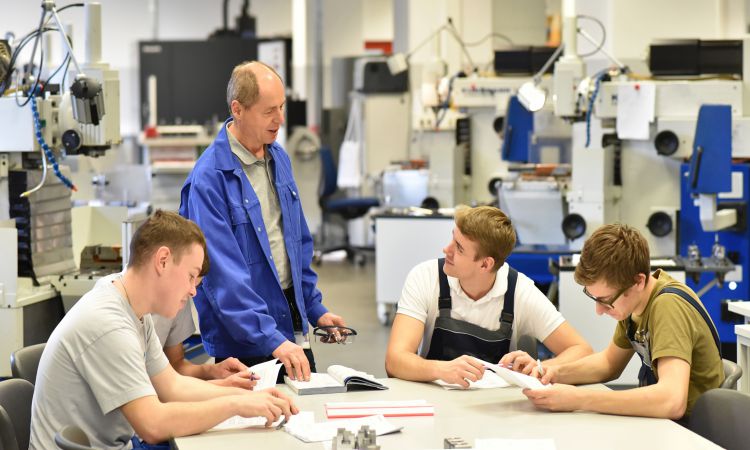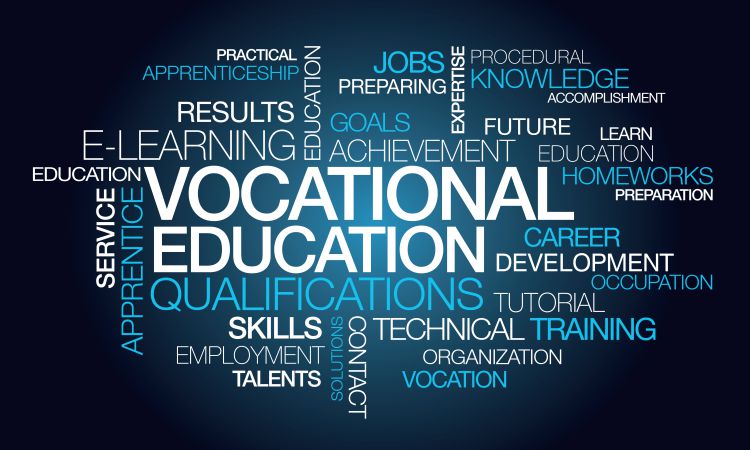 Are you ready to free your skills and enhance your opportunities in career building? Vocational education is much more than learning about specific trade; it’s one crucial self-improvement power tool that equips you with industry-specific skills and real-life experience. Whether you feel like changing your professional field, advancing in your current field, or starting afresh with something new, vocational courses offer a clear and practical path to success.
Are you ready to free your skills and enhance your opportunities in career building? Vocational education is much more than learning about specific trade; it’s one crucial self-improvement power tool that equips you with industry-specific skills and real-life experience. Whether you feel like changing your professional field, advancing in your current field, or starting afresh with something new, vocational courses offer a clear and practical path to success.
This article evaluates why embracing vocational education could make a difference in your personal and professional development. Read on to discover how technical education can help you secure a brighter future and achieve your career goals!
Table of Contents
Skills And Confidence Development
Vocational training is a crucial part of personal growth and career development. It empowers you with practical skills that are highly demanding in the job market. Vocational training programs differ from traditional academic programs in that they involve learning that’s more applied than just theoretical knowledge. This applies to the fact that vocational schools entail active involvement on the part of vocational students in whatever field they choose, be it carpentry, cosmetology, or computer networking.
For instance, a carpentry student might learn to measure, cut, and assemble various woodworking projects. This instills a sense of pride and boosts self-confidence in one’s specific skills. Similarly, a cosmetology student would practice hairstyling techniques, coloring, and makeup application on real clients, developing the necessary skills for their future profession.
The practical training of vocational schools enables you to realize the direct fruits of your efforts. However, you must conduct thorough research to find the best educational institutions with these programs. Click here to explore your options to ensure you receive quality technical training and support in your chosen field. Also, consult with professionals, alums, and career counselors for more valuable insights on meeting industry needs.
Finding Your Passion
Vocational training programs allow you to find your interests and pursue rewarding careers aligned with your interests. With a diverse range of vocational programs available, you can explore various career paths and identify the one that resonates most with your natural inclinations and talents.
A student with a love for animals, for example, might be interested in a course on how to become a veterinary assistant. They can also participate in practical topics to learn how to take care of animals and assist veterinarians during operations.
The ability to explore different vocations fosters self-discovery, a crucial aspect of personal growth. You can seek out things that really interest you and increase your chances of finding a fulfilling and purposeful career path.
Problem-Solving And Adaptability
Another reason to consider vocational training is that it supplies crucial abilities in problem-solving and flexibility. Through hands-on technical training, vocational students face real-world scenarios in their chosen fields, requiring critical thinking and innovative solutions.
Consider an automotive technology student tasked with diagnosing an engine issue. By troubleshooting and applying their knowledge, they develop problem-solving strategies transferable to various situations. Likewise, spatial reasoning and attention to detail are critical for a student learning to become a plumber. The student must understand all the details of the intricate piping systems.
Such an approach trains you to think on your feet, foresee challenges, and be ready to adjust. Employers value these problem-solving and adaptability skills across industries.
 Communication And Collaboration
Communication And Collaboration
A vocational school also enables you to develop effective communication and collaborative skills, which are essential for personal development and career success. You can learn to convey your ideas, listen actively, and work with other students toward a common goal.
For instance, students work collaboratively in a construction trades program to develop a functional residential building. Effective communication is essential as they coordinate tasks, share insights, and provide feedback to one another. Similarly, in a graphic design course, students may work in teams to create a marketing campaign, building their ability to communicate creative concepts and leverage each other’s strengths.
This refocusing on collaboration and communication develops interpersonal skills that go beyond classrooms. Individuals build bridges, resolve conflicts, and navigate diverse perspectives, which are critical skills in any professional setting.
Community Development
The community also benefits from vocational schools. This higher education helps in the establishment of skilled people who bring about economic development and knowledge exchange. Graduates with specialized training become valuable assets, providing quality services and establishing businesses. This creates job opportunities within the communities.
Furthermore, vocational education programs that incorporate community-based learning experiences provide graduates with an even deeper connection to their local area. By working on real-world projects alongside community members, students gain valuable practical experience while addressing local needs.
A graduate from an automotive repair program, for instance, can open a small shop in the local area. This provides necessary services to the community while monitoring young and prospective mechanics. Similarly, a graduate from the construction trade schools might lead local community projects that beautify public places, with the added activity of training others in building techniques.
Such knowledge transfer strengthens community self-sufficiency and pride. Investment in vocational school, thus, nurtures economic development, improves service accessibility, and strengthens the socially interknitted fabric.
Conclusion
Vocational education is a robust investment in your personal and professional growth. It equips you with practical skills, fosters self-discovery, and hones your ability to problem-solve, communicate, and collaborate. By choosing this path, you secure a brighter future for yourself and contribute to the economic and social well-being of your community. Start exploring your options and unlock the potential vocational education programs hold for you.






